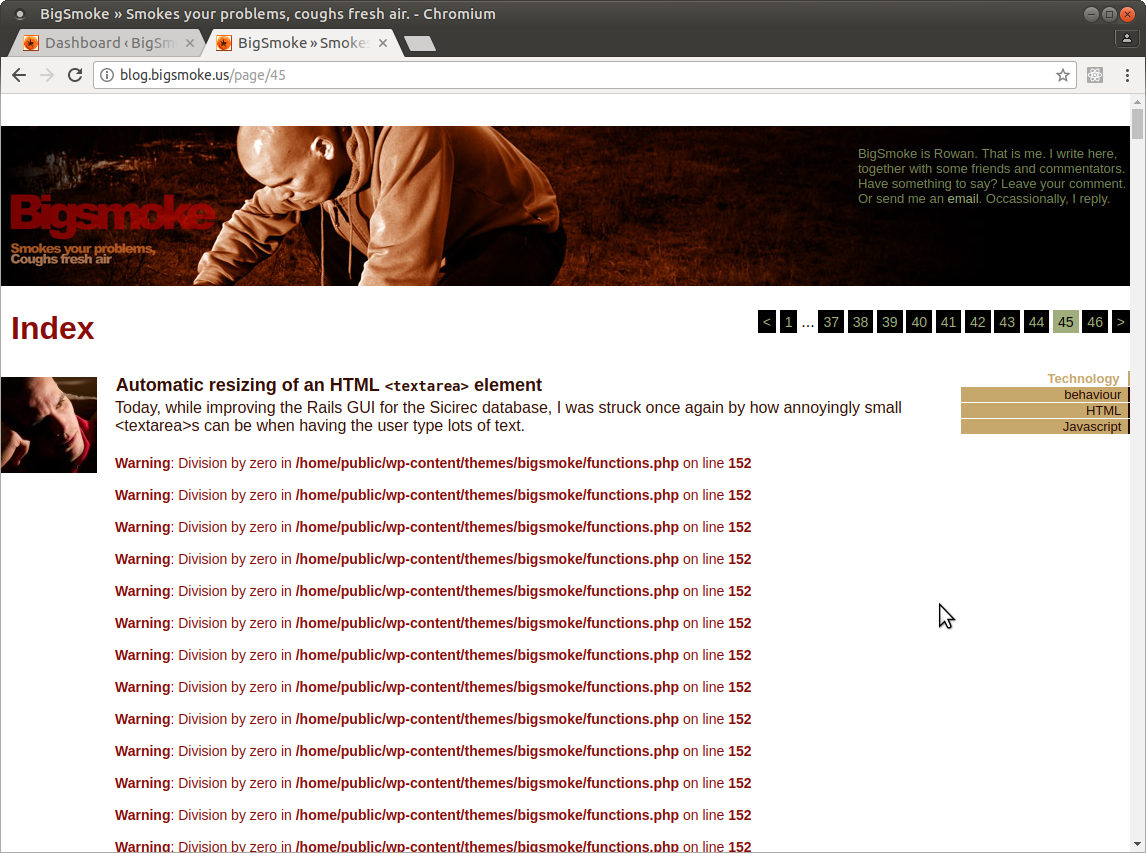They say that blogging is a long way down from essaying. Articles were already better than essays, and books even more so. So they say. A lot is said these days. I say: the more, the merrier. I say: let us say! Let us say whatever we want. And let people read whatever they want, now that they can.
I try to blog as much as I can, not because I think that each post is a piece of poetry that needs to be enjoyed by as many as possible, but because each post represents a train of thought that I need to get rid of. The sooner, the better. Noise is not a problem. The Internet is filled with noise, but nevertheless we only read what we want to read and we still find what we need. We filter. If you don’t, good luck surviving the digital age.
There is a convergence movement towards media integration. Eventually, this will lead to the collapse of all these media, meaning that the need for distinct, specific media will be less and less. This is good. We need to be truly press-less before the original promise of the press can be fulfilled: information liberation.
What I mean by this is that, when we publish, we don’t need to make a clear distinction between the weighty and the weightless. After all, God Google defines the weight of our publications not by means of what we say about it, but by means of incoming link frequency and the relative weight of these links.
When I say something worthwhile, I first have to convince others that I did, but before I can do that, I have to convince them to come look. Then, after visiting me and having been convinced by my great content, they might decide to link to me. Only as soon as that happens, do I gain weight. (According to Technorati, the weight of this blog is pathetic.)
Not every post I write resembles even an essay. Most postst don’t even come close. That’s because blog posts don’t need a point. I’ve made this point before, but I can’t repeat it often enough, because every time that I’m thinking “Shit, what did I do then and what was I thinking?” I’m reminded of it. I’ll stop reiterating this no sooner than I stop forgetting to write these things down.
When a blog post does attempt to make a point, there are even stronger arguments for quantity over quality, because publishing—really publishing—something makes it possible for others to respond, be this in comments or in their own blog. There’s something concrete for them to cite and to reference. This process gives me valuable feedback and I can simply republish my thoughts (which have matured not only through time, but also through argument) in a new post. Voila! And maybe the old post is so shitty that nobody is interested… Who cares?! Obviously, they don’t! So go on and do something else with the time that you’ve freed by not having to polish a turd.
Remember that blog posts are not naturally organized into some sort of reading hierarchy. There’s no reason that the same subject can’t be treated twice. Just hit that “Publish” button, get it out of your head and get on with your life!




Recent Comments